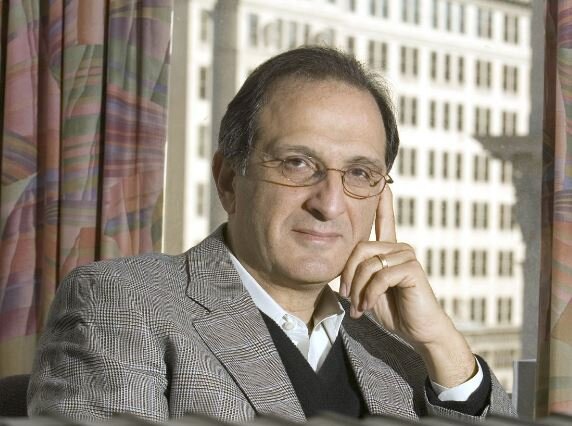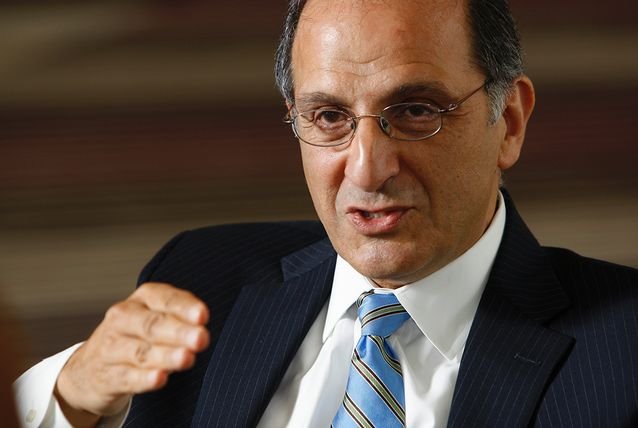Washington Watch Articles From 2005
HYPOCRISY AND HUMAN RIGHTS
I briefly met Natan Sharansky about five years ago. We were sitting together at NBC TV waiting for our respective interviews. I wanted to speak with him. In fact, I had wanted to speak with him since the late 1980’s.

IS THE US CONTRIBUTING TO DEMOCRACY?
I was to have been in Qatar this week, to participate in the Doha Debates. The topic was an intriguing one: “This House believes that George W Bush has kicked open the door to democracy in the Middle East.
CONGRESS’ BAD BEHAVIOR
While the Palestinian Authority, under new leadership, is making a determined effort to reform and reorganize, entrenched anti-peace forces in the US Congress present real barriers to forward movement. Evidence of their continuing ability to define the limits of what is possible was on display this month.

AN EFFORT TO REBUILD US-ARAB RELATIONS
While the Bush Administration and much of the US media paint a rosy picture of US success in producing “Freedom on the March,” from Afghanistan to Egypt, a more thoughtful assessment of the real problems facing the US-Arab relationship came last week from a distinguished group of former US government officials.
LEBANON, AS COMPLEX AS EVER
The continuing signs of ferment in evidence in the streets of Beirut are being heralded in the US as signs that “another Middle East domino is falling.” The Bush Administration has been quick to latch on to the demonstrations as a validation of the President’s democracy campaign.
HOPEFUL, BUT NOT OPTIMISTIC
I’m not a fan of the Prime Minister of Israel, but it is important to acknowledge that, whatever his intentions, the dynamic Ariel Sharon has unleashed will have a transformative impact on Israeli-Palestinian relations.
RAFIQ HARIRI: VISIONARY FOR LEBANON
Rafiq Hariri was larger than life. He was a political giant and a visionary whose accomplishments reflected both qualities—they were enormous in size and far-reaching in consequence.
UNDERSTANDING THE SPEECHES
Listening to both President George W. Bush’s second inaugural address and his 2005 State of the Union message, even before focusing on their content, one was struck by the President’s new demeanor and the confidence and sense of purpose it was meant to convey.

THE CHALLENGES FACING POST-ELECTION IRAQ
The January 30, 2005 Iraqi election took place against the backdrop of a deep sectarian divide on almost every critical issue facing the country: whether or not to have an Islamic government; whether or not to continue the US presence; and whether or not the ongoing insurgency represents legitimate resistance.
IRAQ OVERSEAS VOTING:A BAD IDEA, POORLY EXECUTED
Less than 26,000 Iraqi Americans registered to vote for the Iraqi elections. An even smaller number were expected to actually vote.

POLITICAL INFLUENCE ON THE FREE PRESS
In a media saturated democratic society like the US, the relationship between the media and those who govern it is both intimate and complex. Presidents are elected because they know how to present their message in the media and how to manipulate and control media.

CULTURAL AND COMMERCIAL INFLUENCES ON THE FREE PRESS
ust how free is the US’s “free press?” Does the absence of direct government control, by itself, create a “free press?” In a paper I recently presented at a conference organized by the Emirates Center for Strategic Studies and Research, I sought to make a contribution to this discussion by examining the influences that impact US media.

THE REALITY OF THE TWO AMERICAS
On the one hand, there was the appearance of Alberto Gonzales, President Bush’s nominee for Attorney General, before the US Senate Judiciary Committee, answering questions about his role in the sordid chain of events that led to the horrors of Guantanamo and the torture at Abu Ghraib.

GOOD NEWS IN SAUDI ARABIA AND LEBANON
Significant changes are taking place in public opinion in Saudi Arabia and Lebanon. Despite regional and domestic concerns specific to their countries, Saudis and Lebanese are more optimistic about their futures, more satisfied with their present circumstances, more focused on specific problems that must be solved, and more strongly identified with their countries than when we last polled in 2002.